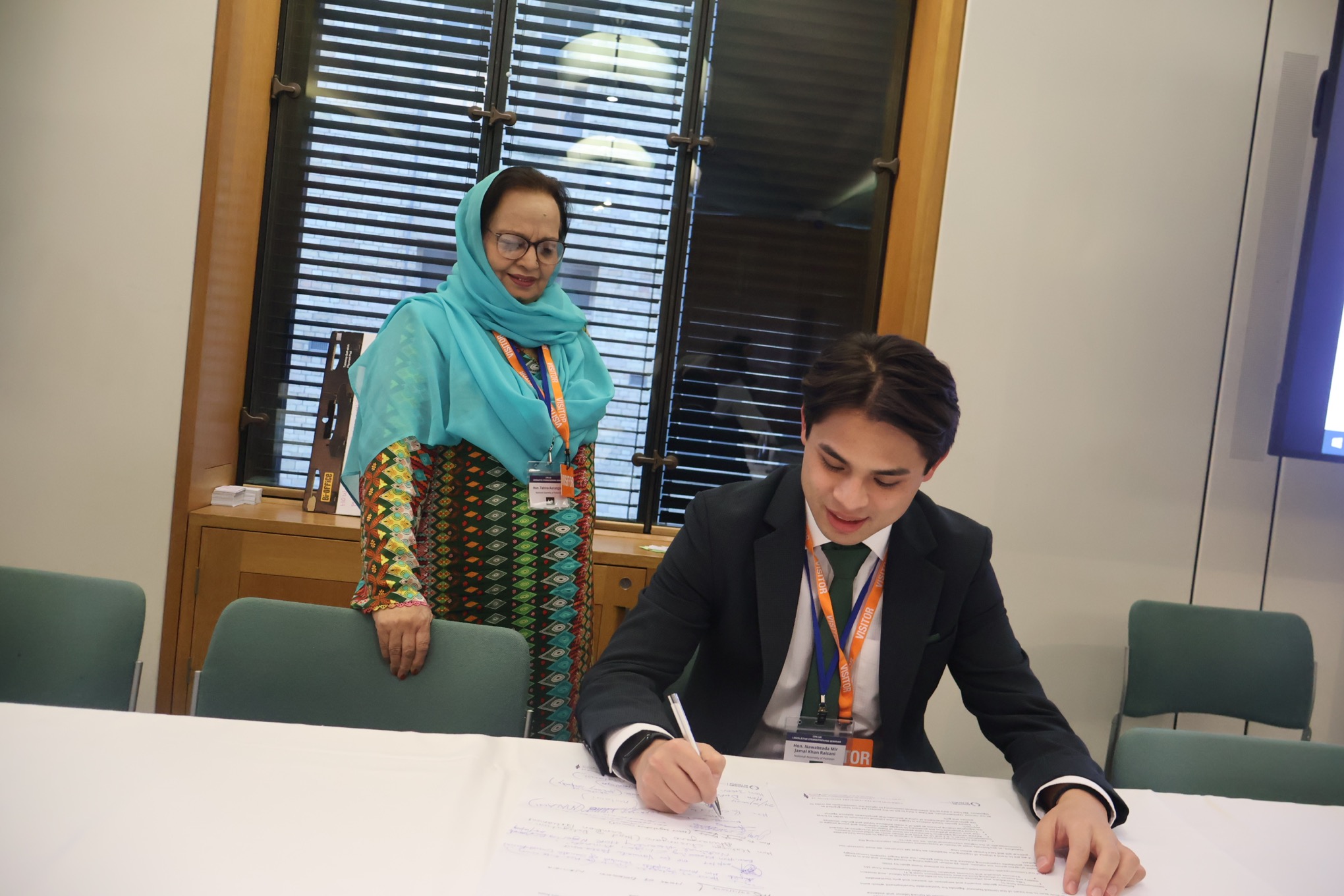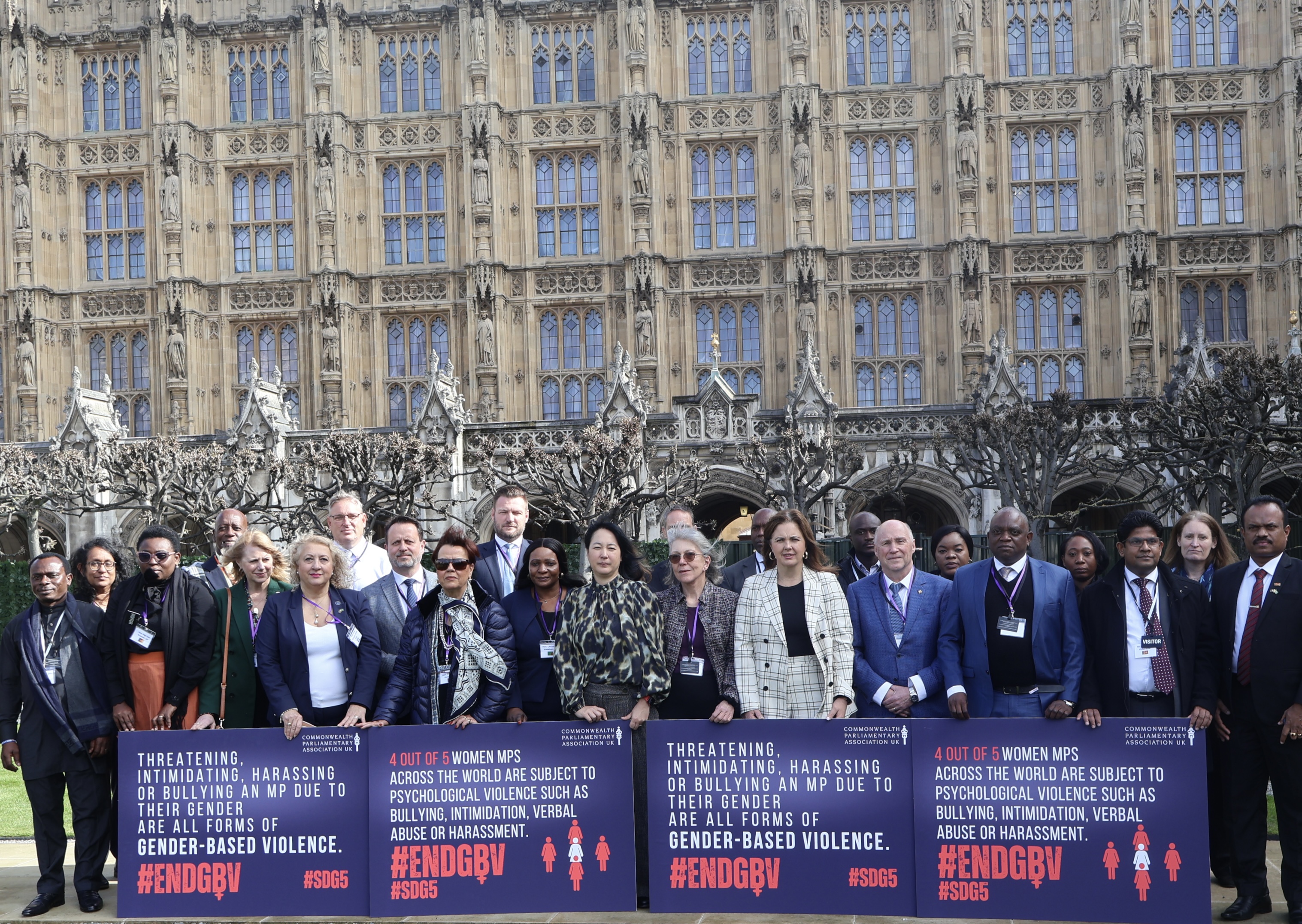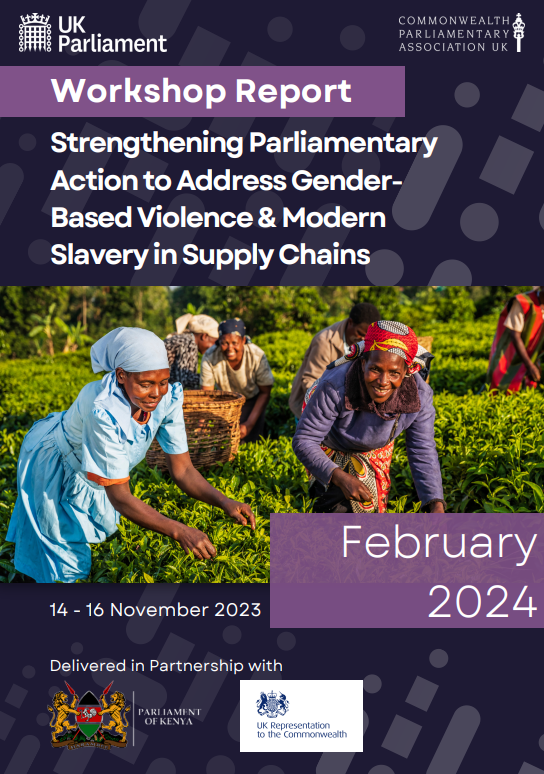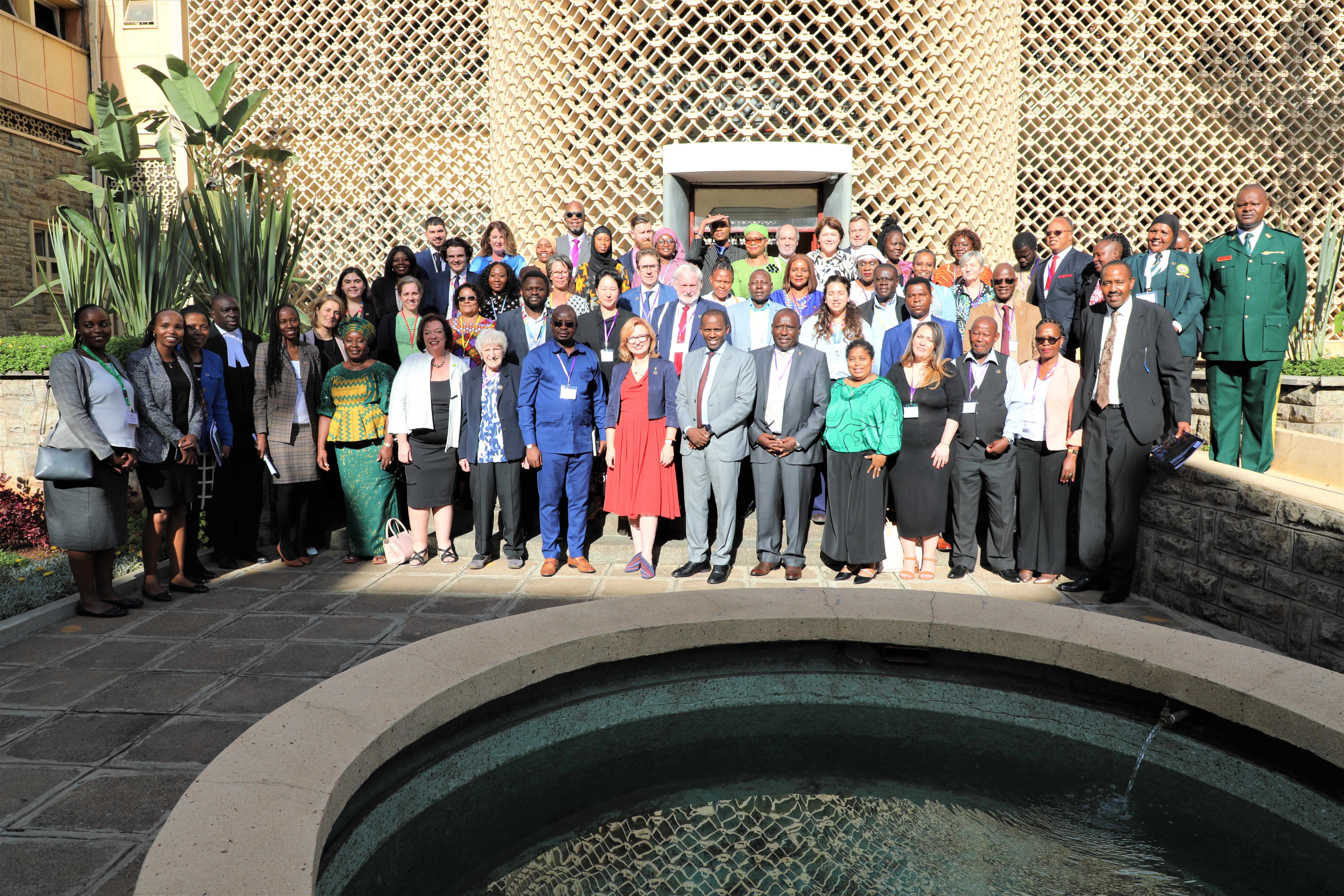Orphanage Trafficking
Published 21 November 2024
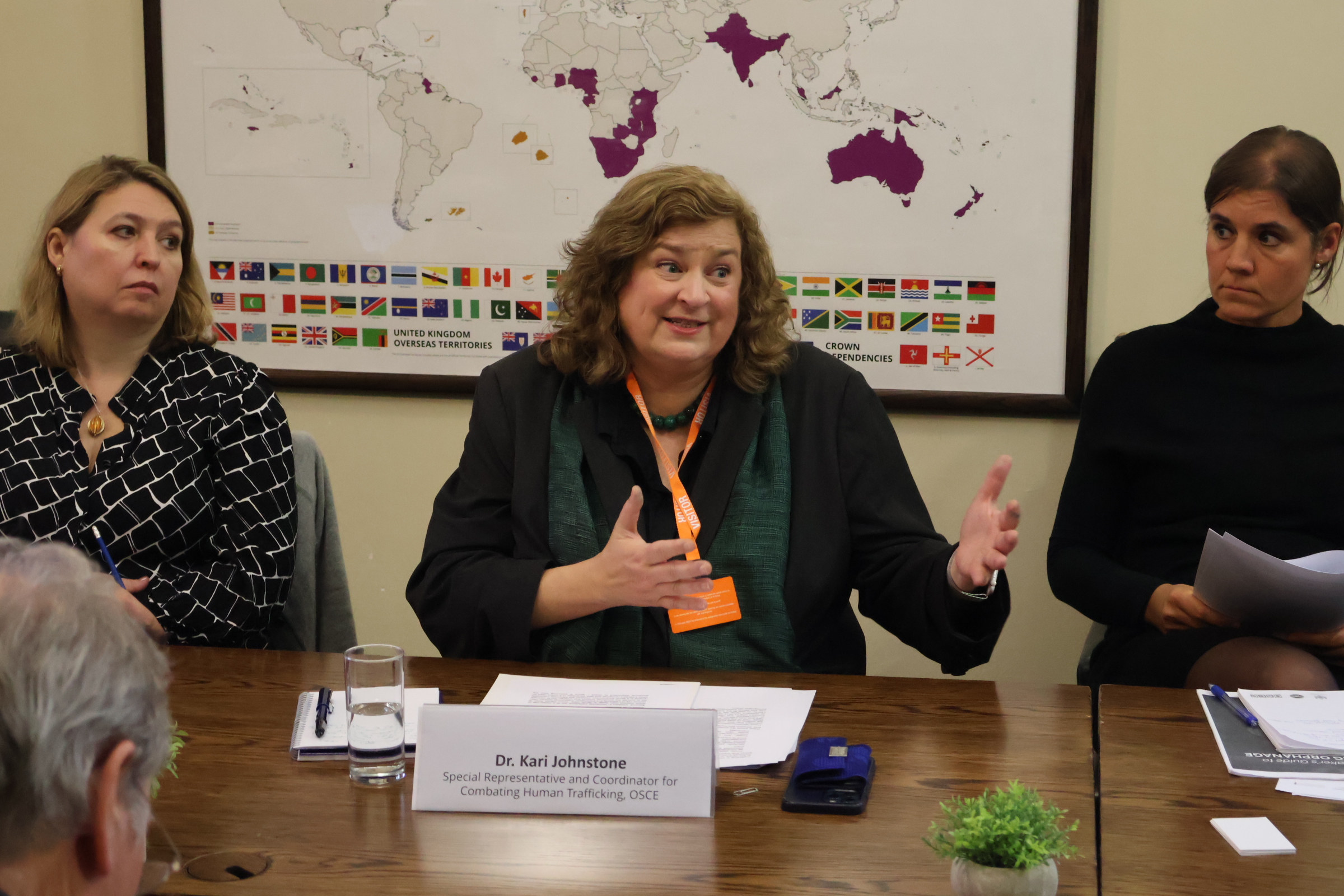
“Orphanages aren’t always what they seem.”
That’s the stark warning from Dr Kate van Doore, an international child rights lawyer who’s been investigating the crime of orphanage trafficking.
Based at the Griffith Law School in Brisbane, she travelled to CPA UK in the Houses of Parliament in Westminster to share her straightforward assessment.
Chaired by Rt Hon. Dame Karen Bradley MP, other speakers at the CPA UK roundtable discussion were Dr Kari Johnstone from the Organization for Security and Co-operation in Europe (OSCE) and Senator Linda Reynolds from the Parliament of Western Australia who joined online. UK parliamentarians were there to learn more about this global problem, as well as representatives from the Inter-Parliamentary Union (IPU), the Foreign, Commonwealth and Development Office (FCDO) and the Human Trafficking Foundation.
Orphanage trafficking is defined as the recruitment and trafficking of children into institutions for the purpose of financial profit and other forms of exploitation. The aim of the roundtable discussion on 18 November 2024 was to raise awareness about the problem and its scale.
Kate van Doore described her initial findings when she first investigated orphanage trafficking. She said,
“We heard from children who told us, ‘My name is such and such and not what it is now. My mum’s been looking for me. Can I go home now?’ We found out that children had new identity documents so parents couldn’t find them. We discovered that orphanage owners and recruiters were travelling to remote areas and telling parents that they would give their children a better life, and parents paid them to do so. We found orphanages that were giving children just 2 teaspoons of sugar in water to keep them going. We found that donations given to some orphanages were being skimmed off. We were outraged.”
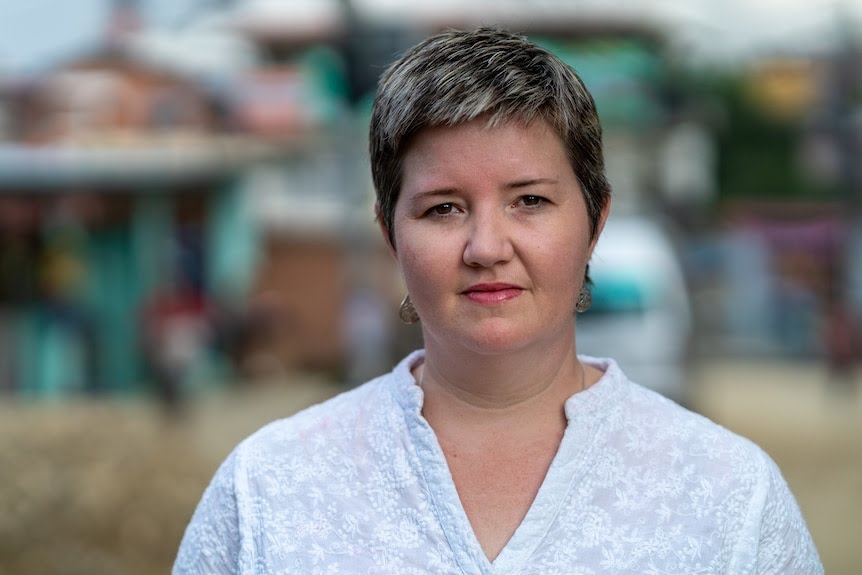
Dr Kate van Doore. Photo taken whilst investigating in Nepal.
Dr Kari Johnstone from OSCE spoke about the prevalence of the crime, and yet there’s very little visibility around it.
“We don’t have great methodology,” she said. “Are we identifying more victims or is the problem growing? Probably both. We know that children in an institution are at higher risk of going missing. That makes them vulnerable. Children have a desire for emotional connection which criminals take advantage of.”
The speakers highlighted the concept of ‘voluntourism’, where well-intentioned people volunteer at an orphanage but risk making the problem worse. Even documenting their experiences on social media can help criminals. She said,
“Technology and social media are used by traffickers and other criminals. Volunteers review where they’ve worked online, and their photos show the faces of children. This gives a lot of information to those who want to exploit these children. This potentially facilitates the problem.”
Dame Karen Bradley MP, the chair of the roundtable, gave a very specific warning linked to this time of year. She said,
“Especially at Christmas time, when there are so many adverts, we all need to be thinking very carefully about charities who say they are looking after children.” She is keen to get a conversation about orphanage trafficking into the media, and all speakers emphasised the importance of educating and advocating about this type of modern slavery.
CPA UK has been raising awareness of orphanage trafficking around the Commonwealth since 2018. It has brought together experts and parliamentarians to exchange and share knowledge on the issue. For more information, please take a look at the IPU Resolution.
